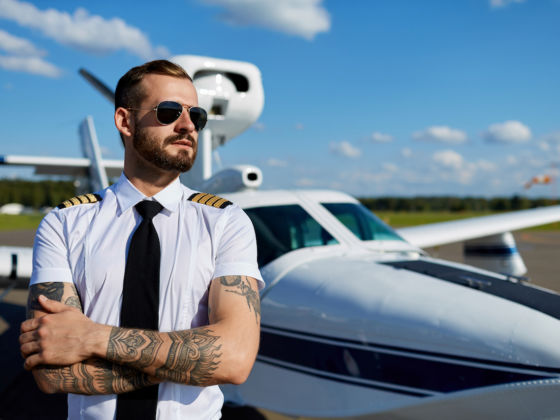Times aren’t easy for small regional airlines. At least, not when it comes to stocking their staff rosters with pilots. Great Lakes Airlines, which operated small craft flying into miniscule markets in the Midwest and Mountain West, stopped flying on March 26. Why? They can’t seem to keep pilots in their planes. Great Lakes is hardly alone. Small carriers around the country have expressed fear that they won’t be able to find enough pilots to operate their business.

Want to Get Paid to Travel? Your Regional Airline Needs Pilots
Skift reported that regional airlines doing business as the express version of larger airlines, i.e. United Express or Delta Connection, have an easier time keeping pilots on staff because working these routes can serve as an “in” with the bigger airline and may lead to a job opportunity down the line. But for those operating solely as independent carriers, such as Great Lakes, attracting pilots is tough. The situation looks increasingly dire as air traffic becomes increasingly affordable.
But what if we flipped the coin here and looked at this from a positive perspective, for aspiring wing-bearers at least. Specifically, let’s take the situation of Reader A, a wanderlust-filled social media scroller who is unhappy in his current gig. He longs for adventure, for unseen horizons and life lived out of a suitcase. He much prefers continental breakfasts to the breakfast burrito offerings at the coffee stand in the lobby of his office building. In fact, Reader A so badly wants to hit the road that he’s willing to invest time and money to make it happen. It would be nice, he thinks, if that effort were rewarded with, say, a new job.
Well, Reader A, you may be in luck. If you really are as willing and able to invest in a career change as you claim, perhaps you should consider becoming a pilot.
It’s not an easy gig that you can just fly into, however. Becoming a commercial airline pilot requires an Airline Transport Pilot License, a process that takes at least two years and a lot of hard work. But it is doable, and the process might be just the kick in the pants you need to really spread your wings career-wise. Here’s what you need to do to become a commercial airline pilot:
Do your research
Begin by browsing around the web and reading reliable sources of knowledge. Pilot Career News is a great place to start. Their site outlines what it takes to become a pilot, complemented by a wealth of career-based information to keep you on track. You’ll need medical training and, of course, flight training.
Sign up for flight school
This is where things begin to get exciting. ATP Flight School offers a program that promises you’ll be ready in two years, give or take a few months. That’s starting from right where Reader A is now — sitting in a cubicle in a completely unrelated field. The program even guarantees graduates get an instructor job paying $42,000 per year.
Work really, really hard
The majority of airline pilots must have at least 1,500 hours of flight time before they are eligible to receive the ATP License. This is in addition to classroom time and is the reason why becoming a certified commercial airline pilot takes as long as it does. After all, people’s lives are in their hands. This is one field where it certainly seems beneficial to be over-prepared. The ultimate goal is to obtain either an ATPL (Airline Transport Pilot Licence) or an MPL (Multi-crew Pilot Licence).
Find a job
Pilot Career News noted that many of the high-level pilot positions opening in the coming years are likely to be based in Asia and the Gulf region. It’s important to note, however, that these positions will primarily be filled by captains with years, if not decades, of experience under their belt. As larger airlines continue to hire top pilots from regional airlines, the regional airlines will continue to hire those with less experience, including (hopefully) Reader A, following completion of training and eventual certification. Pilot Career Center is a good site to monitor, along with the Careers section of regional airline carriers.
It’s not an easy path, but the reward is a career that’s about as far above the cubicle as one can get. Can you smell the recycled air and hotel coffee yet?